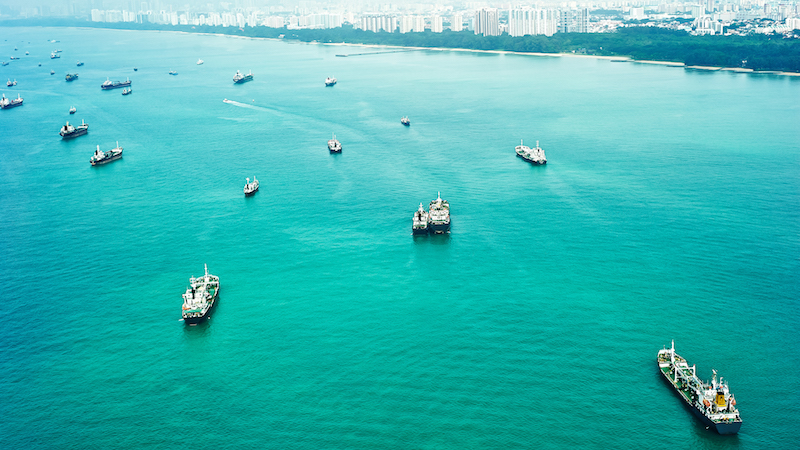International shipping is responsible for more than 2% of global carbon dioxide emissions. That is roughly the same contribution as that made by Germany.
As an industry that is accountable to the UN via that International Maritime Organization (IMO) but not bound by country, the Paris Agreement notably did not account for the role of shipping in perpetuating the climate crisis.
This is perhaps part of the reason that the sector has been on the receiving end of plenty of criticism. Today, however, is the start of something new, something that will help to deliver the IMOs ambitious CO2 reduction goals. Today we’re announcing the creation of a $5 billion research-and-development fund whose ultimate aim is to bring about the full decarbonisation of the global shipping industry.
Many of the complaints levelled at global shipping have been justified. In fact, we concede that in the past we have been slow to respond to the threat of global heating: despite working hard to improve air quality and cut our carbon dioxide emissions, we have not done enough.
And though no reasonable person would recommend a reduction in global trade, which continues to underpin and promote peace and prosperity around the world, we do intend to play our part in addressing the climate crisis. We will match the ambitions of the rest of the world in meeting its carbon objectives. And we will take responsibility for our own contribution to the worsening health of the planet.
Today, we are submitting our proposals to the IMO. This is not a reaction to the intensifying climate crisis but a considered intervention, arrived at after months of discussion between international shipowner associations and ourselves. It is a bold plan and global shipping’s first-ever collaborative effort to solve a problem. But our goal is to play our part in addressing what is arguably the greatest challenge the world has ever faced. Boldness is precisely what is needed.
The tax-free shipping company that took control of a country’s UN mission
This is not a carbon tax. We have no desire to hinder or discriminate against developing economies. Nor do we wish to hold back or obstruct the development of equitable market-based solution. Rather, we are proposing an accountable, centralised, coordinated solution, funded by a transparent contribution of $2 per tonne of fuel bought by shipping companies worldwide, that will leave trade intact while allowing us to meet the lofty goals set by the IMO: to reduce the sector’s total greenhouse-gas emissions by 50% by 2050. What we are proposing is innovation.
To meet the 2050 target, we must improve the efficiency of global shipping by around 90%. But our intention is to accelerate the development of commercially viable zero-carbon ships by the early 2030s. This does not involve building giant sails, but developing new zero-carbon forms of technology and propulsion systems, such as green hydrogen and ammonia, fuel cells, batteries and synthetic fuels created with renewable energy sources.
These do not yet exist in a form that may be used by large commercial ships, especially those engaged in transoceanic voyages. But through the research and development the fund will enable, we can rapidly change this, and our success can become a clarion call to governments, nation-states, international organisations and private companies. We — the shipping community — are doing what needs to be done.
Shipping executive: ‘We have deliberately misled public on climate’
The fund can be established quickly. We have set out the details of a system for collecting fund contributions from shipowners, as well as for the governance of a coordinated R&D programme. If our plan is accepted by the IMO, it will form a non-governmental R&D organisation to manage the fund. The International Maritime Research and Development Board will be overseen by the IMO Member States, but crucially will include a partnership including industry to ensure that we adopt pragmatic innovation that can work in real life.
This detailed proposal has been developed by the major international shipowner association which represent all sectors and trades and over 90% of the world merchant fleet. We will continue to show leadership. And we will be encouraging other stakeholders — the other links on the supply chain aside from shipowners — to involve themselves and help us to push the fund to $10 billion or higher.
We must not leave it to others to carry the burden of addressing the climate crisis. Nor will we ask others to decide the future of maritime. We embrace our responsibility, and we ask the world’s governments to support our efforts and pay in to the fund.
Greta Thunberg is right to say that ‘creative accounting and clever PR’ often lie behind supposed commitments to sustainability, but our plans are transparent, and our regulator has teeth. Now we ask the wider shipping community for their blessing. Change on this scale is difficult and often daunting. But in this case, it could not be more necessary.
Guy Platten is the secretary general of the International Chamber of Shipping
